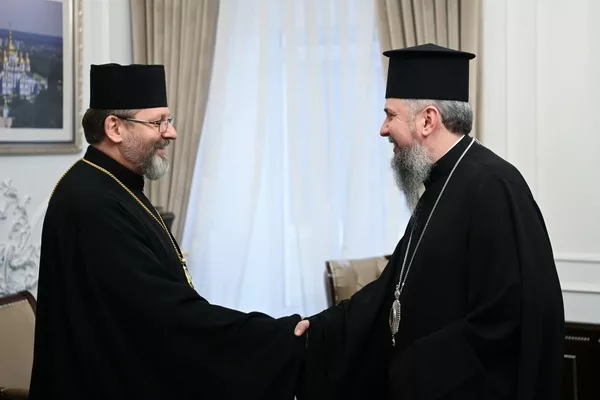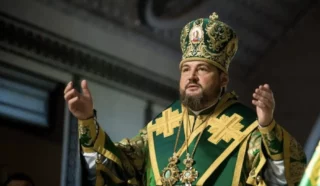After the announcement of the successful solution of the calendar reform, the Ukrainian Greek Catholics declared the need to continue this initiative in the Orthodox environment. In the OCU, of course, they nodded their heads approvingly, they say, wait, and we won’t have long.
The regular propagandists of the OCU, being in ecstasy from what is happening, went even further! The exalted Lana Samokhvalova, rejoicing at the “calendar reform” of the Uniates and the OCU, is already looking forward to the fact that “an improved system for calculating the date of Easter will be introduced,” since “Rome and Constantinople are already in dialogue about this, and it is possible that a compromise will soon be found for a common date Resurrection of Christ”.
However, there are several fundamental differences between Greek Catholics and Orthodox in this matter. Firstly, it is much easier for Greek Catholics to switch to the “new” style, because, although they are “Greco”, they are still Catholics. According to such a calendar, their mother church lived and lives. They have been celebrating all the main Christian celebrations twice for a very long time, and they also celebrate those holidays that the Orthodox have not even heard of.
Secondly, and this is the most important thing, a calendar reform regarding Easter is impossible for the Orthodox, otherwise it will be a direct violation of canonical norms and, in general, common sense. The First Ecumenical Council of Nicaea in 325 agreed that Christians should use a single method to determine the date of Easter, and that the Easter month should be chosen so that Easter was celebrated after the vernal equinox. Moreover, according to the logic of the Gospel, Christian Easter cannot be celebrated before the Jewish Pesach, since, as you know, the Resurrection of Christ occurred after the main Jewish holiday.
In this sense, the Catholic Easter looks much more imperfect, which involves the celebration of Easter before, and sometimes on the very day, Jewish Pesach. Moreover, the Orthodox and Catholics have already had a “skirmish” on this matter. In 1583, Gregory XIII sent an embassy to Patriarch Jeremiah II of Constantinople with a proposal to switch to the Gregorian calendar. The Council of Constantinople in 1583 rejected the proposal as not in accordance with the canons of the Holy Councils, and the followers of the Gregorian Easter, like the followers of the Gregorian calendar, were anathematized.
Will the OCU go for such a violation of the canonical and logical order? There is some certainty that yes. It must be understood that neither Constantinople nor the OCU are absolutely accustomed to violating the fundamental norms of canon law. For example, several years ago, in direct violation of the canonical rules of the Church, the Phanar adopted a resolution on the admissibility of the ordination or service of bigamist clergy. This practice is now actively used by the “priests” of the OCU, who without a twinge of conscience file for divorce from their first wives and, without hesitation, live with other women. What can we say about the constant facts of concelebration between representatives of the OCU and the UGCC, to which Dumenko does not react in any way.
In this sense, we cannot but agree with the thesis of colleagues from the Pravblog that Ukraine, in this sense, is being used as a testing ground for testing the unification process between Orthodox and Catholics. Someone will say that Greek and Roman Catholics are not the same thing, but we are ready to argue with such a statement, because the main principle of the union is that the wrapper is Orthodox, and the filling is pure and undiluted Catholicism. In fact, ask any Greek Catholic if he will recognize his church if it leaves the power of the Vatican. Considering the general course of the Patriarch of Constantinople and the Pope of Rome, the version about the use of Ukrainian religious realities in the theme of unification between these branches of Christianity does not seem so unrealistic. The definition of a common Easter, one must understand, will be the final stage in this story.




